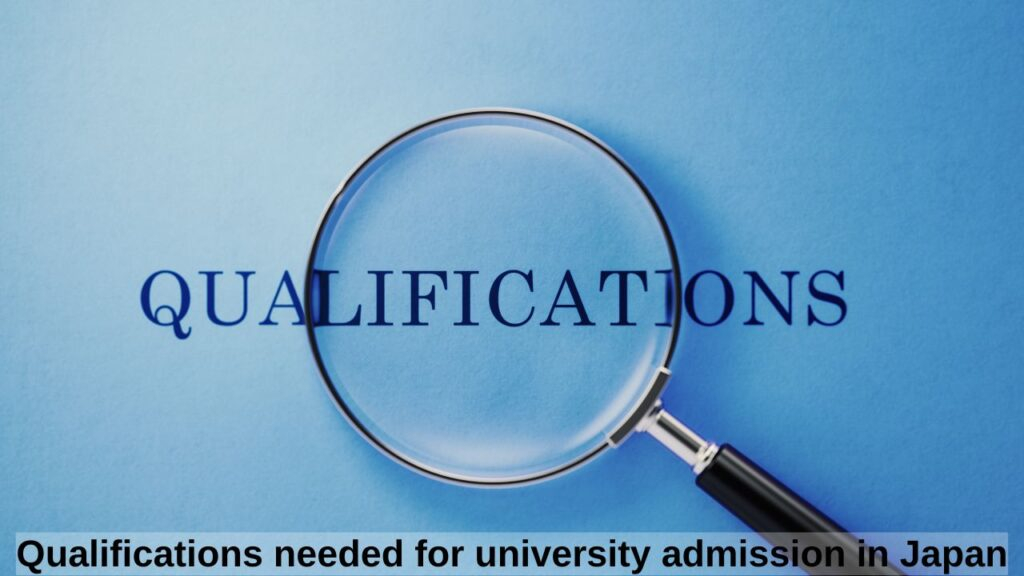Top Benefits of Studying at an International University in Japan

How would it feel to study in a country where over 80% of students secure jobs before graduation? In Japan, this is a reality. They do not say you go to classes to learn. Instead, they say, you live the learning process. According to a report from the USN, Japan’s education is one of the most consistent and can keep its top 8 ranks globally. So, if you are searching for an international university in Japan, you are in the right place.
Top international universities in Japan
Here is the list of top 10 international universities in Japan.
UNIVERSITY NAME | QS RANKING( Globally ) |
1. The University of Tokyo | 28th |
2. Kyoto University | 49th |
3. Osaka University | 77th |
4. Tohoku University | 81th |
5. Nagoya University | 100th |
6. Kyushu University | 119th |
7. Tokyo Institute of Technology | 124th |
8. Hokkaido University | 145th |
9. Waseda University | Top 13.3% |
10. Keio University | Top 14% |
Which University Suits You Perfectly

To make your choice easier, we are here with some details based on the strengths of those universities. It will help you understand which one is best for your career.
The University of Tokyo
- Leading the research and innovations of different branches and fields.
- Holds a very high rank in English-medium programs in natural and applied sciences, engineering, and liberal arts.
- It has a large and diverse international population, which makes it have strong international connections.
- Consistently ranked as the top university in Japan and among the best in Asia.
- Located in Tokyo, Japan’s capital, providing students with opportunities to connect with significant industries and cultural experiences.
Kyoto University
- It stands out for research topics and, most commonly, scientific and technological ones.
- Offers a variety of graduate courses that are in English.
- Cleans and keeps a beautiful campus in a culturally diverse city.
- Strong ties with universities worldwide, offering extensive exchange programs and collaborative research opportunities
- Encourages interdisciplinary studies, particularly in fields like environmental studies and sustainable development
Osaka University
- It is used mainly by engineering and medical students.
- Specifically, it concerns services offered, language, and the latter’s prominence is observed at the given academic level—postgraduate.
- Ensures that the students get placement with organizations that can help the firms.
- Osaka is an active city and the city also has delicious foods for food aficionados; the people are also cordial so that makes a student feel like they are not a student.
- The organization has a very active participation in international research and has a very good relation with some international organizations.
Tohoku University
- Various strands of education provide quite a number of instructions in English.
- These include strong characteristics: Guardians can easily enter the institution and fully support international students.
- The stakeholders value it as one of the leading universities in Japan, and it often participates in the production of global high-impact research.
Nagoya University
- Research Institutes are oriented mainly to accommodate natural sciences, engineering, and humanities.
- Providing multiple degree study plans in English,
- Promotes contact between people from different countries and nations, thus supporting exchange processes.
- Highly ranked globally, particularly for its research output and academic reputation.
Keio University
- Solely focused on delivering business and management, economics, and social sciences.
- Fosters a good international alum network that is handy in the job market.
- Described as one of the leaders of modern education and scientific production tendencies.
- Many graduates of Keio are also influential in the business world, especially in business and finance, as well as the political world.
- Situated in Tokyo where students are guaranteed the most accessible freedom to access cultural sites and also get an internship and networking prospects.
Waseda University
- It offers a wide range of undergraduate and postgraduate study options taught in English.
- It builds a healthy international culture since it admits students from different countries all around the globe.
- Educational and professional leader in business, political science, and international relations.
Tokyo Institute of Technology
- Those include engineering, science, and technology educational programs.
- It provides opportunities for advanced research in innovative areas of study.
- It offers numerous graduate courses in English
- Collaborates closely with industries, providing students with practical experience and job opportunities.
Hokkaido University
- Famous for its agriculture, environmental and earth sciences, and engineering research.
- Very active and involving many partnerships focusing on ecological issues and Arctic research.
- This university is in Sapporo, with a rich natural setting and obligatory hearing activities for the students, such as skiing, hiking, etc.
- Offers a comprehensive service to help global learners adapt to the institution and general American culture, language instruction inclusive.
- It specializes in English-taught programs, especially in environmental sciences and engineering, and has a substantial student population from across the globe.
Kyushu University
- Fukuoka’s base is culturally steeped and student-friendly and has a population in excess of 1.5 million.
- A large number of partnerships and mobility agreements with universities in other countries.
- ACA has a lot of programs in English, especially at the postgraduate level, and this makes the institution attract students from all over the world.
- Focused on the topics of sustainability and environmental study and, therefore, is a significant pioneer of related issues.

For an Inquiry about Japan: (880) 1930-350350
Qualifications needed for university admission in Japan

Educational Background:
- Applicants need to have a high school diploma or GED.
- For graduate programs, a relevant bachelor’s degree is essential.
Language Proficiency:
- Many universities impose one of the advanced levels of the Japanese Language Proficiency Test (JLPT) N2 or N1 for courses conducted in Japanese.
- The TOEFL or IELTS score is usually considered valid for the programs taught in English.
Entrance Examinations:
- Based on the selected universities, some will demand the completion of an entrance test, which may include subject areas likely to be related to your course of study.
- There are some programs where the university can take an exam depending on the ratio of the seat number and applied students number.
Letters of Recommendation:
- Almost all universities require recommendation letters from teachers or academic advisors.
- Therefore, such letters should be based on your accomplishments in academic life or the opportunities within the educational sphere.
Statement of Purpose (SOP):
- It is often necessary to submit an SOP that defines the objectives of your academic activity, the choice of Japan, and the correspondence of the program to your future profession.
Financial Proof:
- The student must meet tuition and living expenses by producing adequate funds for the Japanese University.
Visa Requirements:
- There is some truth in this notion, although one has to admit to a university and then apply for a student visa.
- Most universities assist students in the process of obtaining a visa.
Scholarships and Financial Support in Japan

It is difficult for us to think about education abroad without scholarships. So, here is how you can get scholarships in Japan.
- Keep good grades; most scholarships go to students with good grades.
- When applying for programmes in Japanese, it’s essential to demonstrate proficiency by achieving good scores in the Japanese Language Proficiency Test (JLPT). Similarly, a good score is essential in either TOEFL or IELTS for English programs.
- Go through the university or to scholarship departments such as MEXT, JASSO, or private bodies.
- Follow courses that cut across disciplines preferred by scholarship-provider agencies, such as science and technology or international relations.
- Some scholarships consider your financial status; include documents in your application.
Advantages of Studying in Japan
Global Recognition: Earn a degree that is globally respected, opening doors to career opportunities worldwide and making you a competitive candidate in the international job market.
Cultural Immersion: Immerse yourself in the unique blend of revolutionary trends and customs that Japan offers, a society that is both traditional and modern, promising an exciting and intriguing experience.
Advanced Technology: Japan, a country rich in modern facilities and technologies, offers you the opportunity to be at the forefront of learning and growth, inspiring and motivating your educational journey.
Language Skills: Acquaint yourself with the Japanese language by conversing with fellow Japanese students while enhancing your English, making you a polyglot in the world job market.
Diverse Network: The association of people and ideas becomes wide-ranging, thus adding to the general and personal satisfaction of personal and professional life.
Scholarship Opportunities: You will have access to many scholarship services whose main focus is on international students, which makes paying for your tuition cheaper.
Safe Environment: Education is one of the safest countries regarding security, so you can effectively pursue your educational goals without the concern of getting involved in one form of security complications or another.
Job Prospects: Take advantage of the close cooperation between universities and companies in Japan, which usually provides internships followed by job offers.
Rich Student Life: Revise enjoyable campus activities in colors and discover Japan’s picturesque natural and heritage attractions during your study holiday
Experience of student life in Japan
Education in Japan provides students with the experience of hard academic work combined with an orientation on traditional Japanese cultural experience. They are privileged to have a disciplined lifestyle with a strong plumage of colors, can use modern infrastructure, and participate in a broad range of co-curricular activities.
Moreover, students gain a deeper understanding of Japan’s cultural sites, from the ancient temples to the vibrant business and entertainment hubs. Exploring the country on weekends is a breeze, thanks to the efficient public transport system. With clubs and societies thriving in almost all universities, students have ample opportunities to forge friendships and pursue their hobbies. The free time is equally enriching, as Japanese cities are known for their safety, hygiene, and accessibility, ensuring students can expand their learning and comfort in a secure and comfortable environment.
How to apply for study programs in Japan

Here’s a step-by-step guide on how to apply for study programs in Japan :
Research Programs:
- Find universities and programs that are interesting to you as a student and suitable for your future occupation.
Check Requirements:
- Check every program’s required admission requirements, language,y, and other essential documents.
Prepare Documents:
- Collect academic records and documents, recommendation letters, statement of purpose/letter of intent, and language proficiency tests.
Take Entrance Exams:
- Sit for any entrance tests that may be required, such as the EJU or any course-specific exams.
Submit Application:
- Send it directly to the university either through their online application processes as provided or to the admission office.
Apply for Scholarships:
- The process of scholarship searching and application should involve selecting the relevant and appropriate ones according to the qualifications and required criteria.
Await Results:
- We await the respective universities’ acceptance letters and prepare for other processes, such as visas.
Apply for Visa:
- After all the steps, you should go to the Japanese embassy to apply for a visa.
Job Opportunities in Japan

Japan has good career prospects and employment opportunities for international students, particularly in technology, engineering, and business-related faculties. This means that due to the healthy economy, multinational organizations that operate in the country are in dire need of competent personnel. Graduates who master the Japanese language gain a substantial advantage in the job market, as more companies increasingly value both foreign language skills and native language proficiency. These internships usually work into the students’ course, often resulting in employment; Japan’s employment market remains robust and remunerative.
Furthermore, the Japanese government offers support to foreign workers, such as graduates, through various visa channels, aiding their settlement in the country. Actively engaging in job seeking, networking, and attending employer information fairs can significantly enhance job anticipation, making you feel proactive and engaged in your job search in Japan.
Experts Opinion on Study in Japan
Living in Japan can be a blessing and fun, depending on one’s purpose, interests, or situation.
Why You Should Study in Japan :
- Cultural Immersion and Unique Experiences: Japan presented a proper exposure to the culture, which comprises things such as tea ceremonies, karate, and many seasons. The fact that Japan is situated in the east enables one to note the beauty of all four seasons, as well as benefit from the mixture of both the old and the new ages (U-Multirank) (Coto Academy).
- Educational Excellence: Japan’s education system, particularly in engineering technology and the humanities, is very reputable. Japanese universities focus on an academic role and exchange knowledge and innovations, mainly in IT and the sciences (U-Multirank).
- Language Learning Opportunities: Therefore, effectively learn and master the language. Evaluati in Japan. Evaluating classes, talking, and practicing daily language and usage will improve your language immensely (Coto Academy).
Challenges of Studying in Japan: Challenges of Studying in Japan:
- Cost of Living and Tuition: Expenses can be high – depending on the location or city and level of education – and food habits of students; for example, studying in Japan can prove very costly, especially when studying in Tokyo. The cost of college tuition, books, and other supplies are very steep, and the cost of living, such as rent and other expenses, are among the highest globally. This is something to consider if budget is a significant concern (Question Japan) (Coto Academy)
Conclusion: Is Japan the best place for your studies?
Japan’s well-developed education system earns international recognition for its values of academic performance, creativity, and internationalization.
The OECD has noted that Japan’s educational system management is a unique balance of tradition and innovation. It upholds traditional values while embracing current trends in education, creating a reliable and forward-thinking system with firm educational policies that prepare students for the global economy.
Global Recognition:
Japan’s education structure, considered one of the best in the world, is a fascinating blend of Eastern beliefs and progressive learning that encourages children’s curiosity and encourages holistic development. Japan’s universities, particularly in the fields of STEM (Science, Technology, Engineering, and Mathematics), have earned global acclaim. Their popularity is a testament to the high standards and quality of education they offer.
High Academic Standards:
- According to the OECD, Japan’s schooling has produced a stream of highly academically oriented learners fully equipped to face the demands of the global economy.
- Japanese universities offer severe conditions for studying, with an emphasis on gaining solid positions in future professional activity.
Innovation and Technology:
- Japan’s investment in technology and research has led to the development of innovative student resources and facilities.
- Such commitment to innovation makes Japan an ideal choice for students who want to get an internationally competitive education.
Nevertheless, set clear priorities for your academic plans, language preparation, and cultural compatibility to determine if Japan aligns with your further education and personal development vision.